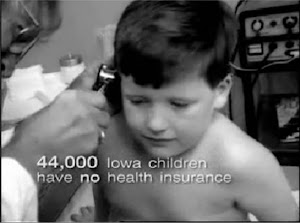
While reading an article form the New York Times Greensboro, N.C. (http://www.nytimes.com/2007/08/22/health/policy/22insure.html) about low income famlies like the Lange's family with little or no health insurance it got me thinking. Like the Lange family I can relate in several ways although I come from a middle class family, with a single parent mother in the nursing profession health care has always been a struggle. My mother has health insurance but with my brothers kidney disease that forced him to have multiple surgeries, and a kidney transplant, it's been almost impossible for my mother to keep up with his medical bills totalling in the thousands. Like the Lange family if I was not on the death bad I didn't really ever go to the doctor. This is sad, money shouldn't have this big of an affect on someones health. For many if you can get by feeling sick but getting by it worth the huge amounts of money that you save. Many people like my mother had to work 2 or 3 jobs to cover the expenses, while thousands get multiple jobs to seek health care benefits for their families through there employers but are still drowning in bills.


